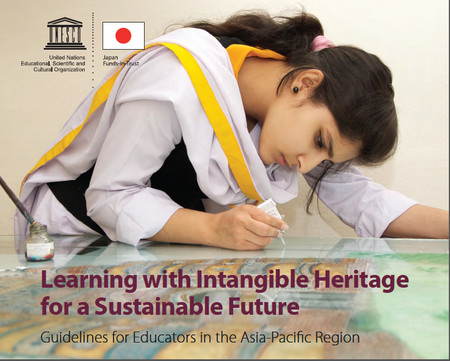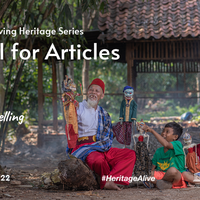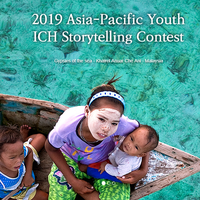New UNESCO Educational Guide on Intangible Cultural Heritage in the Asia-Pacific Region
 The UNESCO Office in Bangkok, Thailand, has recently published a guide, freely available online, entitled Learning with Intangible Heritage for a Sustainable Future. Guidelines for Educators in the Asia-Pacific Region.
The guide provides teacher educators and teachers with an understanding of the concept of intangible cultural heritage (ICH) and explains why ICH should be integrated into the curriculum in tandem with the principles and perspectives of Education for Sustainable Development (ESD). This guide explains how the strategic incorporation of ICH elements and ESD principles into the curriculum can enable learners to gain the knowledge and skills that are necessary for ensuring sustainable development in the future.
Within the framework of the 2003 Convention for the Safeguarding of the Intangible Cultural Heritage, this guide is intended to raise the capacity of teachers to incorporate local elements of ICH, and principles of ESD, into teaching and learning practices. The guide provides examples of how the teaching and learning of ICH for sustainable development has been creatively incorporated into several disciplines – such as mathematics, science, music and social studies – in various cultural settings. It also suggests steps for preparing and assessing lesson plans.
UNESCO developed this guide based on the results of pilot projects conducted in four countries in the Asia-Pacific region, where participants developed locally-customized guidelines and materials for the incorporation of ICH elements and ESD principles into teaching and learning in schools. The examples of ICH given in this guide are not more significant expressions than others and are not necessarily those that should be prioritised, they are just illustrative samples.
The elaboration of the guide has been supported by the UNESCO-Japan Fund-in-Trust.
The guide can be downloaded from http://www.unescobkk.org/culture/creativity/ich/ichesd/teachers-resources/
The UNESCO Office in Bangkok, Thailand, has recently published a guide, freely available online, entitled Learning with Intangible Heritage for a Sustainable Future. Guidelines for Educators in the Asia-Pacific Region.
The guide provides teacher educators and teachers with an understanding of the concept of intangible cultural heritage (ICH) and explains why ICH should be integrated into the curriculum in tandem with the principles and perspectives of Education for Sustainable Development (ESD). This guide explains how the strategic incorporation of ICH elements and ESD principles into the curriculum can enable learners to gain the knowledge and skills that are necessary for ensuring sustainable development in the future.
Within the framework of the 2003 Convention for the Safeguarding of the Intangible Cultural Heritage, this guide is intended to raise the capacity of teachers to incorporate local elements of ICH, and principles of ESD, into teaching and learning practices. The guide provides examples of how the teaching and learning of ICH for sustainable development has been creatively incorporated into several disciplines – such as mathematics, science, music and social studies – in various cultural settings. It also suggests steps for preparing and assessing lesson plans.
UNESCO developed this guide based on the results of pilot projects conducted in four countries in the Asia-Pacific region, where participants developed locally-customized guidelines and materials for the incorporation of ICH elements and ESD principles into teaching and learning in schools. The examples of ICH given in this guide are not more significant expressions than others and are not necessarily those that should be prioritised, they are just illustrative samples.
The elaboration of the guide has been supported by the UNESCO-Japan Fund-in-Trust.
The guide can be downloaded from http://www.unescobkk.org/culture/creativity/ich/ichesd/teachers-resources/Similar content
deadline
08 Jul 2015
deadline
01 Oct 2022
deadline
15 Oct 2019




